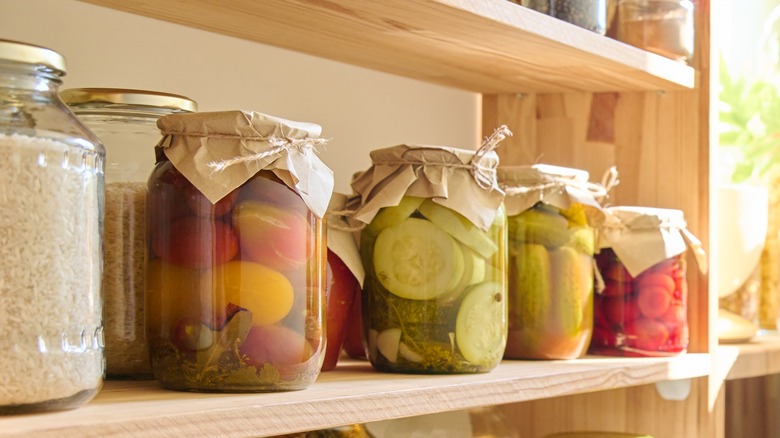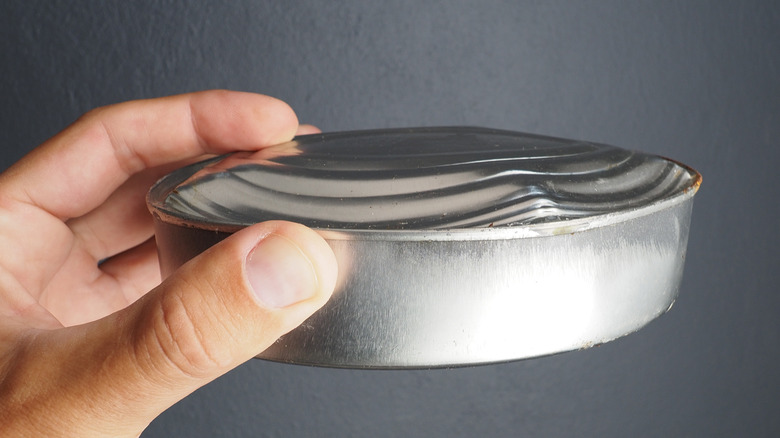Common Places You Shouldn't Store Canned Goods
Anyone who has ever canned anything themselves will be acutely aware of this fact: canned goods need to be stored properly in order to maintain shelf life. If you think it's safe to assume that this rule applies only to home canned goods and not to industrialized canned food ... assume again. Even food that has been canned in an environment as controlled as a factory and has a shelf life of months, not weeks will spoil if stored improperly.
Though commercial canning has been around since the 19th century, humans were developing ways to make their food last long before that.The Industrial Revolution brought about the birth of the modern city and, by proxy, modern suburbia. As a result of this, combined with the rise of the modern grocery store, more and more people became reliant on long-lasting, convenient canned goods as part of their daily lives.
However stable we may think our canned goods are, believing that we can store them practically anywhere with no consequence is a mistake. Canned goods can be just as sensitive to environmental changes as fresh produce. Albeit, the effects occur at a much slower rate. And while it seems obvious enough where you should be storing your canned food it's equally important to know where you shouldn't.
Cool and dry, not damp
Canned goods need to be stored in a cool, dry place without drastic environmental changes, particularly areas subject to high humidity, moisture, or fluctuating temperatures.
Keeping cans away from moisture is important because commercial cans are made from metal, and prolonged exposure to moisture will eventually lead to rusting. As the rust deteriorates the can, the risk of rupture and food contamination increases. So this rules out storing food underneath your sink, in the bathroom, or a damp cellar. The high humidity and poor ventilation in these and other areas not only have the potential to damage metal cans and break seals but are also a breeding ground for mold.
Heat and cold also play factors in the storage of canned goods. An ideal long-term storage area is a dry, cool basement (ideally between 50-70 degrees Fahrenheit) away from direct sunlight, furnaces, and pipes. Leaving canned goods in an area that frequently sees drastic temperature fluctuations increases the risk of rupture from freezing and thawing of the liquids in the can. Ruptures will lead to spoilage, and the last thing you want is canned food that's gone bad. Botulism, though rare in commercially canned goods, is nevertheless a real concern caused by exposed foods. So stick to the basics and keep those cans in a cool, dry place.

